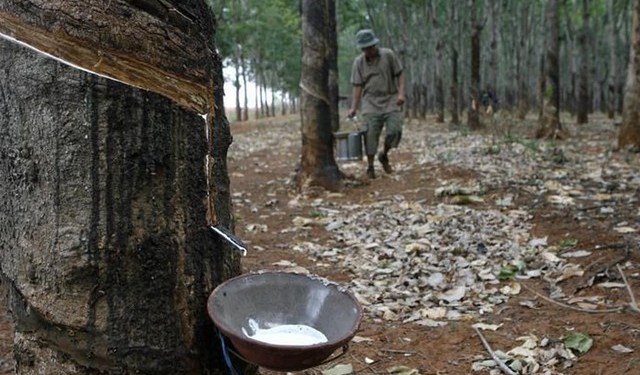Asian rubber markets settled higher last week as the U.S. Federal Reserve announced its policy to maintain an aggressive monetary stimulus package despite improvements in the U.S.economy. In the mean time, the yen was slightly strengthened against the dollar, and it also seemed to support NR prices, On the other hand, worries on Cyprus debt crisis still weighed on the markets and curbed NR prices to improve further at the end of the week.
IRCo’s DCP rose to 282.44 US cents/kg on Friday, or 5.08 US cents/kg (1.83%) higher than its settlement price at 277.36 US cents/kg on Monday. Thai RSS-3 also settled higher at 294.75 US cent/kg on Friday from 290.03 US cents/kg on Monday, or gained 4.72 US cents/kg or 1.63%. Meanwhile, Thai STR-20 also climbed slightly to 277.87 US cents/kg on Friday, or 2.03 US cents/kg, (0.70%) higher than its settlement price at 275.84 US cents/kg on Monday. Moreover, Malaysia SMR20 as well as Indonesia SIR20 also improved during the week. Indonesia SIR20 was up to 276.00 US cents/kg on Friday, or 5.00 US cents/kg (2.39%) higher than its settlement price at 271.00 US cents/kg on Monday. Similarly, Malaysia SMR20 also settled a bit higher at 283.00 US cents/kg on Friday, or 2.00 US cents/kg (0.71%) higher than its settlement price on Monday at 281.00 US cents/kg.
The benchmark rubber contract for August delivery on TOCOM settled at 278.50 yen/kg on Friday, 7.60 US cents/kg (2.81%) higher than its settlement price at 270.90 yen/kg on Monday. In addition, the Shanghai Futures Commodity Exchange for September delivery also finished the week higher at 22,830.00 Yuan/ton, or 545.00 Yuan/ton or 2.45% higher than its settlement price at 22,285.00 Yuan/ton on Monday. Similarly, AFET RSS-3 for October delivery also rose a bit to 86.35 THB/kg on Friday, or a slightly gain of 1.25 THB/kg, or 1.47% higher than its initial price at 85.10 THB/kg on Monday.
NR supply in the coming week is expected to be tighter than an earlier week as lots of rubber plantations in southern Indonesia are expected to experience inclement weather. Meanwhile, rubber plantations in southern Thailand and the Northern Hemisphere of Indonesia and Malaysiaare in full swing of the dry winterin.
Source: IRCo



























